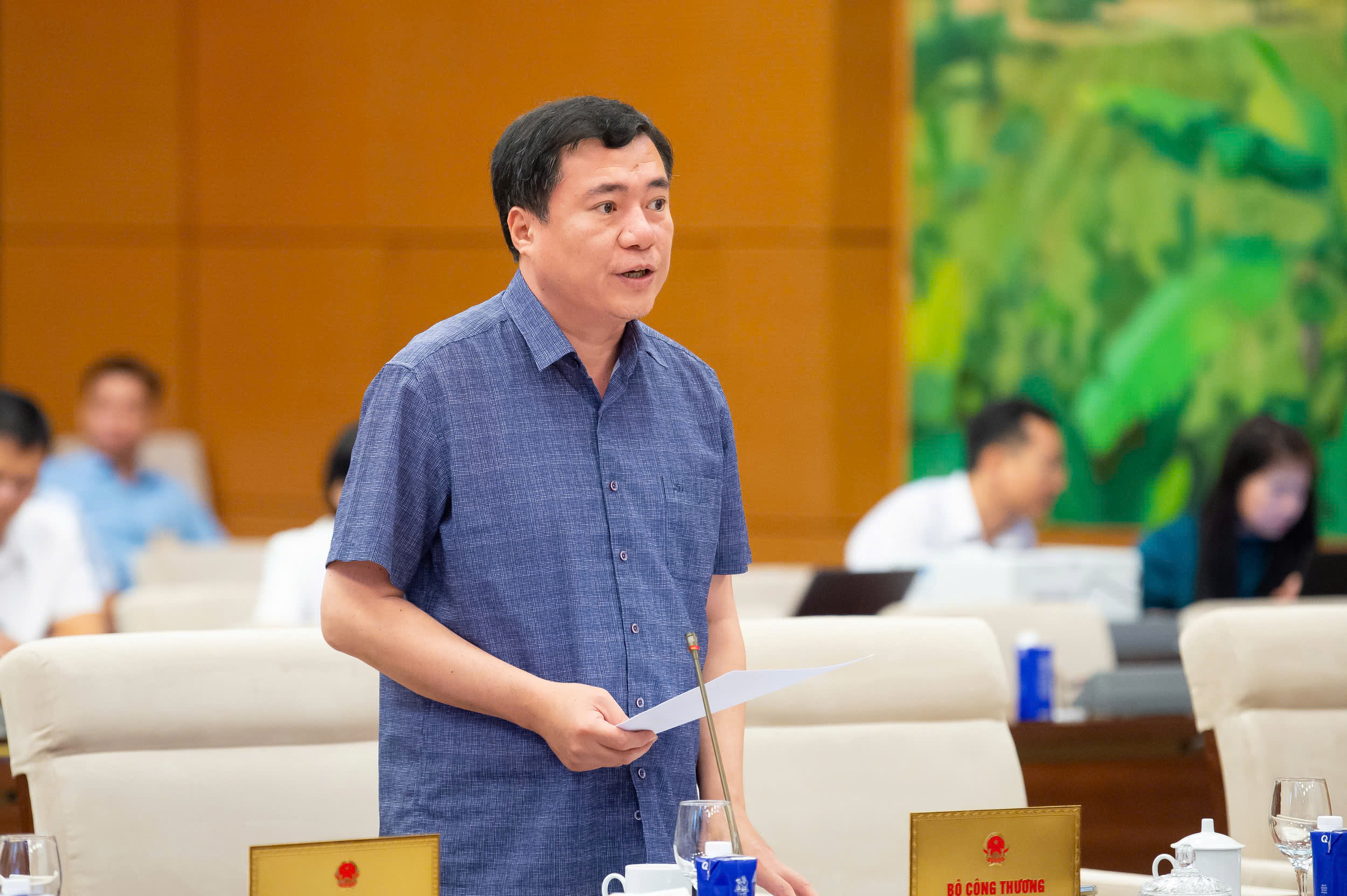On 22/9, the National Assembly Standing Committee discussed the draft Law on E-commerce. On behalf of the Minister of Industry and Trade, Deputy Minister Nguyen Sinh Nhat Tan presented the draft law and explained that it specifies the responsibilities of platform owners, sellers, and livestreamers on e-commerce platforms.
The draft law requires e-commerce platforms to disclose information about sellers, products, services, delivery terms and policies, payment mechanisms, and dispute resolution processes. Platforms must also implement a self-censorship mechanism for pre-posting information, reviewing, and removing violating products.
A key new point is the requirement for online sales platform owners to verify domestic online sellers' identities through VNeID. Foreign sellers will be verified through legal documents.
 |
Deputy Minister of Industry and Trade Nguyen Sinh Nhat Tan presents the draft law at the meeting on 22/9. Photo: National Assembly Portal |
Deputy Minister of Industry and Trade Nguyen Sinh Nhat Tan presents the draft law at the meeting on 22/9. Photo: National Assembly Portal
For livestreaming activities, platform owners must verify the livestreamer's identity, publicize it, and implement real-time content control measures. Platforms are also responsible for storing all livestream data (video and audio) for at least one year.
Sellers (owners of goods and services) must provide livestreamers with information regarding product names, origins, responsible parties for product and service quality, and related details.
Livestreamers are prohibited from providing false or misleading information about the uses, origins, quality, price, and after-sales and warranty policies of goods and services. They must adhere to the content of advertisements approved by competent authorities.
The draft law also adds regulations for managing online sales platforms with foreign elements. Foreign platform owners must establish a legal entity in Vietnam if they meet one of three conditions: The platform provides a Vietnamese-language interface, uses a ".vn" domain name, or reaches a threshold of 100,000 transactions per year with domestic buyers.
Investors can only establish legal entities through two methods: Establishing an economic organization or contributing capital to or purchasing shares in an existing one. When investing in large-scale platforms, they must seek national security assessments from the Ministry of Public Security.
If authorizing a legal entity in Vietnam, they must ensure fulfillment of all responsibilities and make a deposit at a commercial bank or a branch of a foreign bank in Vietnam. According to Deputy Minister Tan, these regulations aim to address issues related to compensation for domestic buyers.
According to data from the Ministry of Industry and Trade, Vietnam's e-commerce market reached over 25 billion USD last year, a 20% year-on-year increase. The sector accounts for about 10% of the country's total retail sales and consumer services, ranking third in Southeast Asia. By 2030, the market is projected to reach approximately 63 billion USD.
However, the emergence of many new models has made e-commerce increasingly complex. The trend of super apps—where users download a single app to access multiple services—raises legal liability issues in case of transaction incidents, risks of personal data abuse, or unfair competition.
Livestream selling is currently managed as a form of advertising, lacking specific regulations for participants, account verification, or tax obligations. Some livestreams generate billions of Vietnamese dong in revenue, but the government collects no taxes. There are also cases of exaggerated product claims, affecting consumer health.
Counterfeit goods and intellectual property infringement on online platforms remain unchecked. The rapid growth of cross-border e-commerce also brings risks of counterfeit and low-quality goods, transaction fraud, and tax revenue loss.
Reviewing this content, Phan Van Mai, Chairman of the Economic and Financial Committee, requested the drafting agency to provide supplementary reports clarifying existing gaps in current e-commerce management regulations. This is to avoid general regulations in the draft law that overlap with existing laws on taxation and advertising.
According to Mr. Mai, the drafting agency needs to clearly define the scope and content of "e-commerce activities" and clarify regulations corresponding to the specifics of goods sales contracts compared to service provision. The nature, methods, and operations of services are very different from e-commerce platforms.
The draft Law on E-commerce is expected to be submitted to the National Assembly for review at its October session.
Phuong Dung












